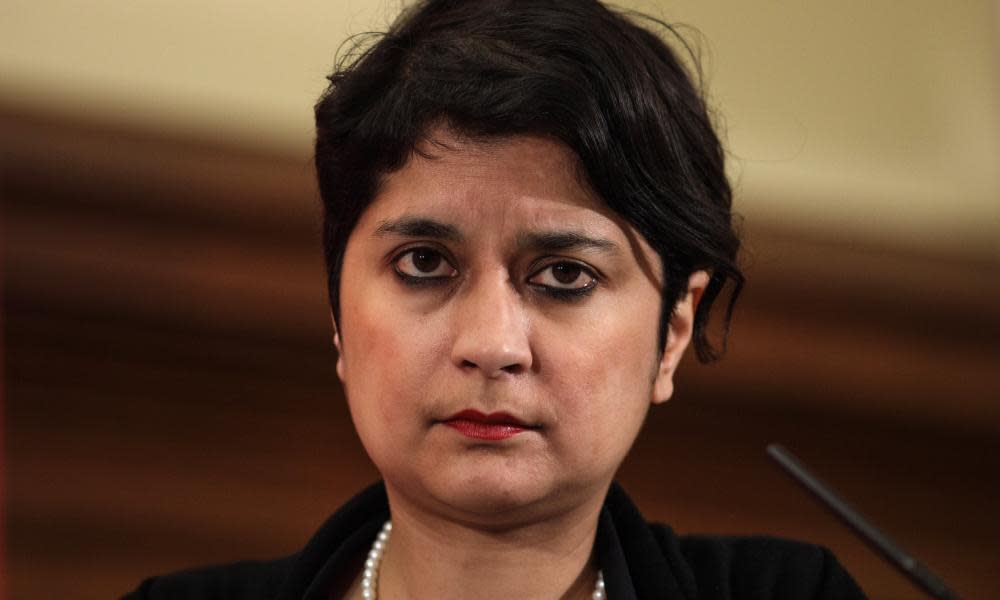Chakrabarti 'would not condemn' people who break strike laws

Shami Chakrabarti has criticised the government’s trade union legislation requiring a 50% turnout in strike ballots and said she would not condemn people for choosing to defy it.
Labour’s shadow attorney general said she would not encourage individuals to act illegally but made clear that she believed the existence of “unjust laws” posed an ethical dilemma for union members.
“Labour in government will reform unjust, anti-civil libertarian, anti-trade union laws. In the meantime, it is not for me to urge people to break unjust laws but neither is it for me to condemn them,” she said.
“Unjust laws will ultimately create a personal and ethical dilemma for those living under them.”
Lady Chakrabarti’s comments came after Jeremy Corbyn said he supported workers’ fighting for pay increases when asked about the prospect of illegal strikes.
The Labour leader said he viewed the Conservatives’ 2016 Trade Union Act as “really unfair” – but fell short of actively backing illegal action.
“This law is something that is really unfair,” Corbyn said. “No MP, very few MPs, get more than 50% of their electorate. I think I was one of the very few who does.”
Asked on the BBC’s The Andrew Marr Show on Sunday whether he would support workers going on strike regardless of the law, Corbyn refused to rule it out. “The clear answer is this: I support the campaign for a decent pay level in the public sector,” he said.
“I will ensure that a Labour government repeal the existing trade union law and bring us in line with the international labour organisational conditions.”
The question was asked because of Unite leader Len McCluskey’s threat to break the law over the government’s failure to act over public sector pay.
“In terms of the concept of a coordinated public service workers’ action, yes I think that’s very likely and very much on the cards. If the government has pushed us outside the law, they will have to stand the consequences,” he said.
Following the introduction of trade union legislation which requires a 50% ballot turnout, the need to always act inside the law has been removed from the union’s rule book, he said.
McCluskey said he and other union members might be willing to go to jail and could follow other historic figures by standing by their principles. “The reality is that the law is wrong and it has to be resisted. I dare say if you’d have been interviewing Nelson Mandela or Mahatma Gandhi or the suffragettes you’d be telling them that they were breaking the law.”

 Yahoo News
Yahoo News 
